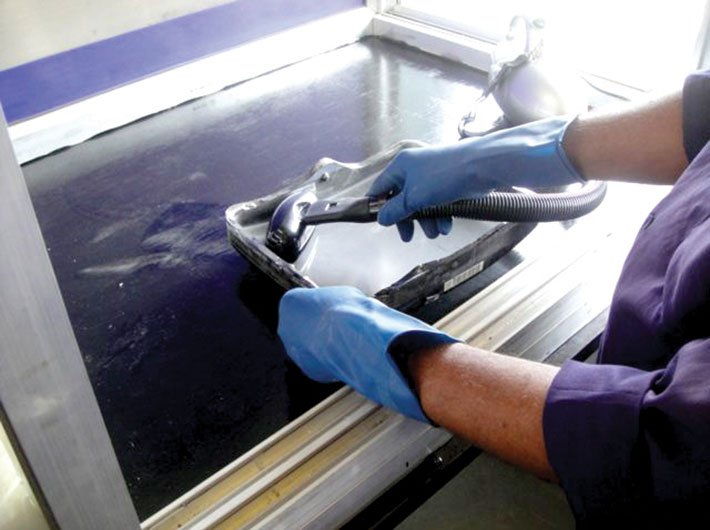A Navi Mumbai company is not only recycling e-waste but is also generating employment for many
With the electronic revolution sweeping the country everyone is becoming a gadget freak. As soon as a new upgrade is launched we discard our old devices to buy the new ones. But have we ever thought where do these obsolete devices go and how much e-waste in return we generate? A UN report answers this question. India discarded 1.7 million tonnes (Mt) of electronic and electrical equipment in 2014, according to the UN’s Global E-Waste Monitor 2014 report. The country is the fifth largest generator of e-waste in the world.
Confirming this alarming trend, Dr Arun S Rao, chairman, Rao A Group of Company, says, “India is sitting on a ticking e-waste bomb.” And he should know since his group company EcoFriend Industries deals with e-waste on a daily basis. After getting its first dismantling licence in 2010, the Navi Mumbai-based company is one of the three registered e-waste management, recycling, and disposal unit in Maharashtra. It also claims to be the second largest e-waste management facility in the state.
The unit has a licensed capacity to manage 1,000 metric tonnes of e-waste. However, the capacity remains underutilised and it is able to recycle only 100-200 metric tonnes a year. Reason? The company doesn’t get enough e-waste.
“The government keeps giving out licences. If you tally the total capacity of the units of disposal and dismantling plants in India with the e-waste generated, the difference is quite a bit. The solution to handling e-waste in India is not to just give out licences but to create awareness and use the resources in a better way,” says Akash Rao, the group's chief marketing officer.
Also, most of the e-waste in the country is collected by the informal sector. Due to lack of awareness, most consumers end up giving e-waste to kabadiwalas. These dealers after extracting useful elements from the device either burn the remains or just throw it away, which is certainly not an eco-friendly move. As a result most of the waste that can be recycled or re-utilised is simply thrown away.
On the other hand if the corporates try to give their e-waste to the formal sector then they have to shell out money as the units charge them for providing services. “We [the formal sector] have to follow certain environment and labour laws, which make it a costly process. So the consumer chooses the easy way out,” says Akash.
How they do it
Back in 2010, the unit started operating as a dismantling unit. However, it was also at this time that the company started experimenting with various in-house techniques of e-waste management. Explains Akash, “Since we have such a strong chemistry background, there was no breakdown in the processes we used. Everything was sourced locally. At that point, the plant was dismantling about 2,500 metric tonnes of e-waste.”
It was in 2013, that the unit got its recycling licence. All the research to develop in-house technologies to treat the e-waste had been done in the facility. Today, EcoFriend's unit in Navi Mumbai receives e-waste from across the state.
The process typically begins with submission of Green certificate form 13 and an entry in the Maharashtra pollution control board passbook. Once approved, the e-waste consignment is shipped to the company's Navi Mumbai unit. The segregation of material begins even as it gets unpacked at the facility. While the material is being segregated, any secure data that may exist with the e-waste is destroyed.
After that, the dismantling process starts, which is a combination of manual and automatic processes. It is dismantled into the various categories: glass, waste, plastic, metal, and circuit board. Dismantling is a dry process. The waste is decontaminated and rendered non-hazardous by separating the hazardous components. These materials are sent to Mumbai Waste Management Ltd in Taloja to be disposed of.
This is followed by manual dismantling using the space de-dusting tools. The machine is connected with bag dust collectors and has vents to remove dust using a cyclonic separator. This also has a chimney to maintain air quality. Collection boxes are placed near the table to collect the dismantled components. Then, mechanised dismantling is done which includes physical separation of the waste.
Hammering and shredding operations are done to reduce the size of the material and separate materials like steel. Plastic and glass are sent for secondary recycling. Fine grinding, wet grinding and magnetic density are used to segregate the materials. The dismantled material is further recycled using techniques such as hydrometallurgy, a process where metals such as silver, gold and platinum are recycled.
While the company has developed various in-house techniques to deal with waste, it also has a campaign system for treating e-waste. After a particular device crosses a certain standard of quality it becomes eligible for e-waste and is dismantled.
ankita@governancenow.com
(The article appears in the September 1-15, 2015 issue)

